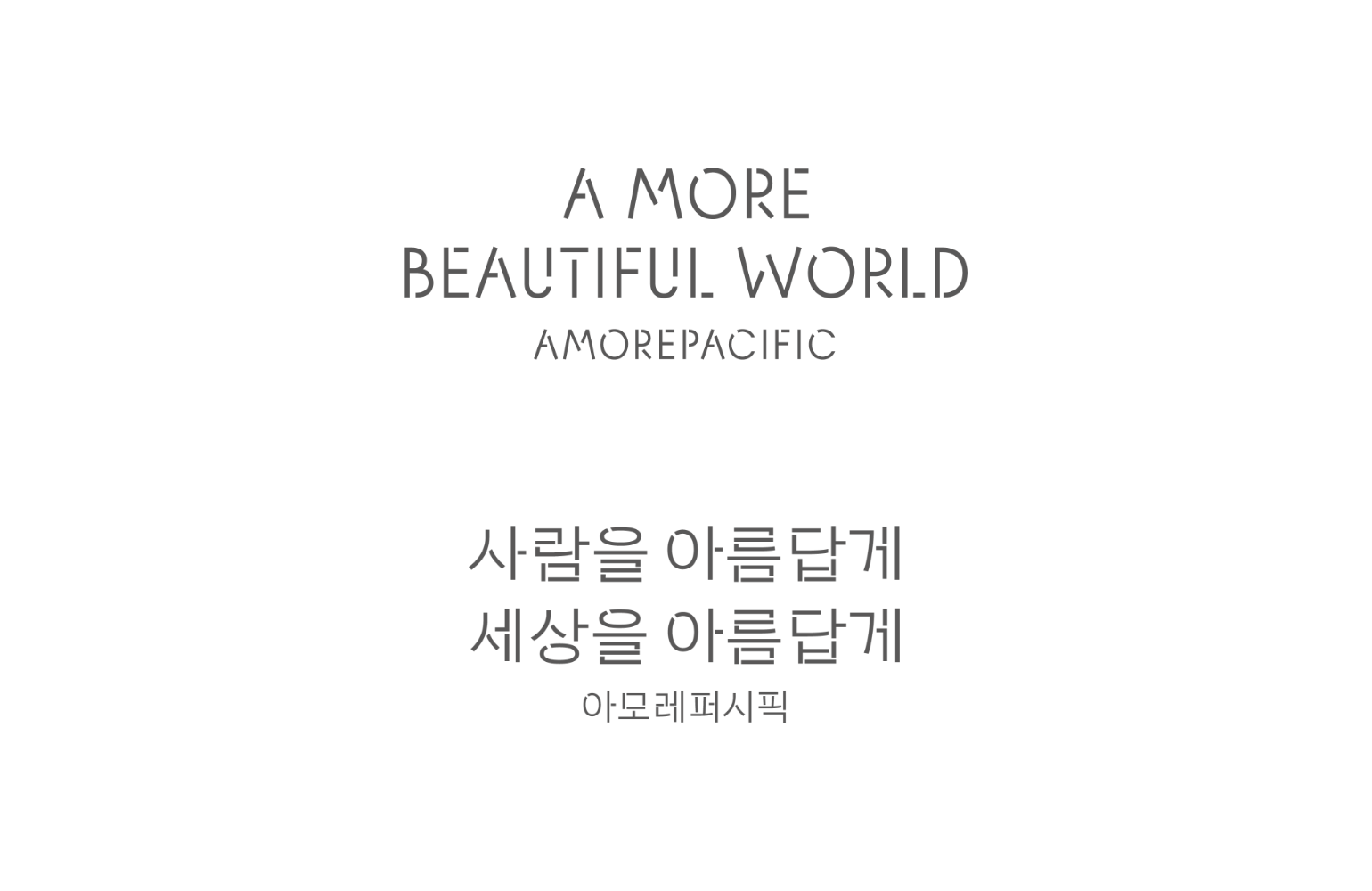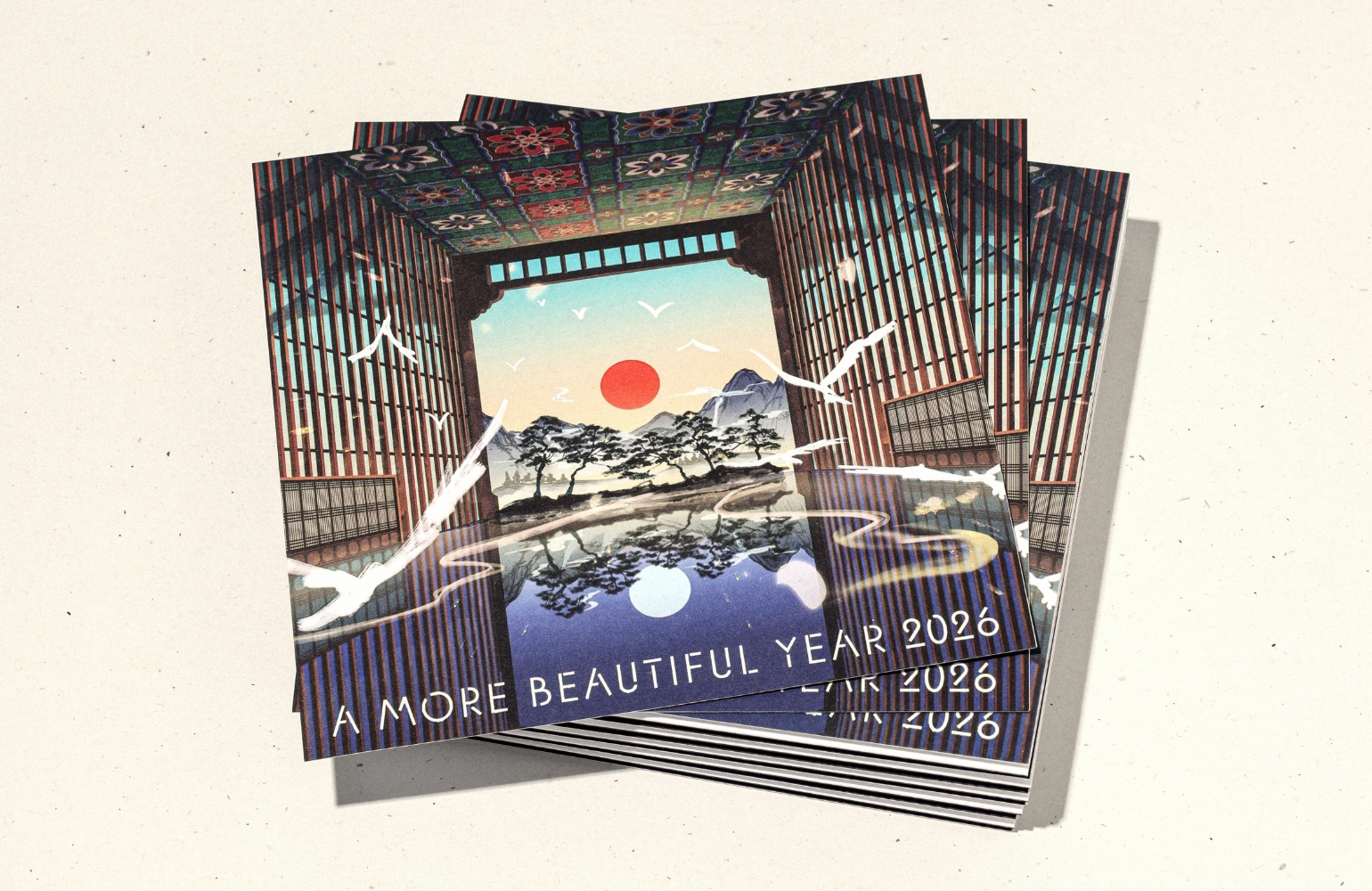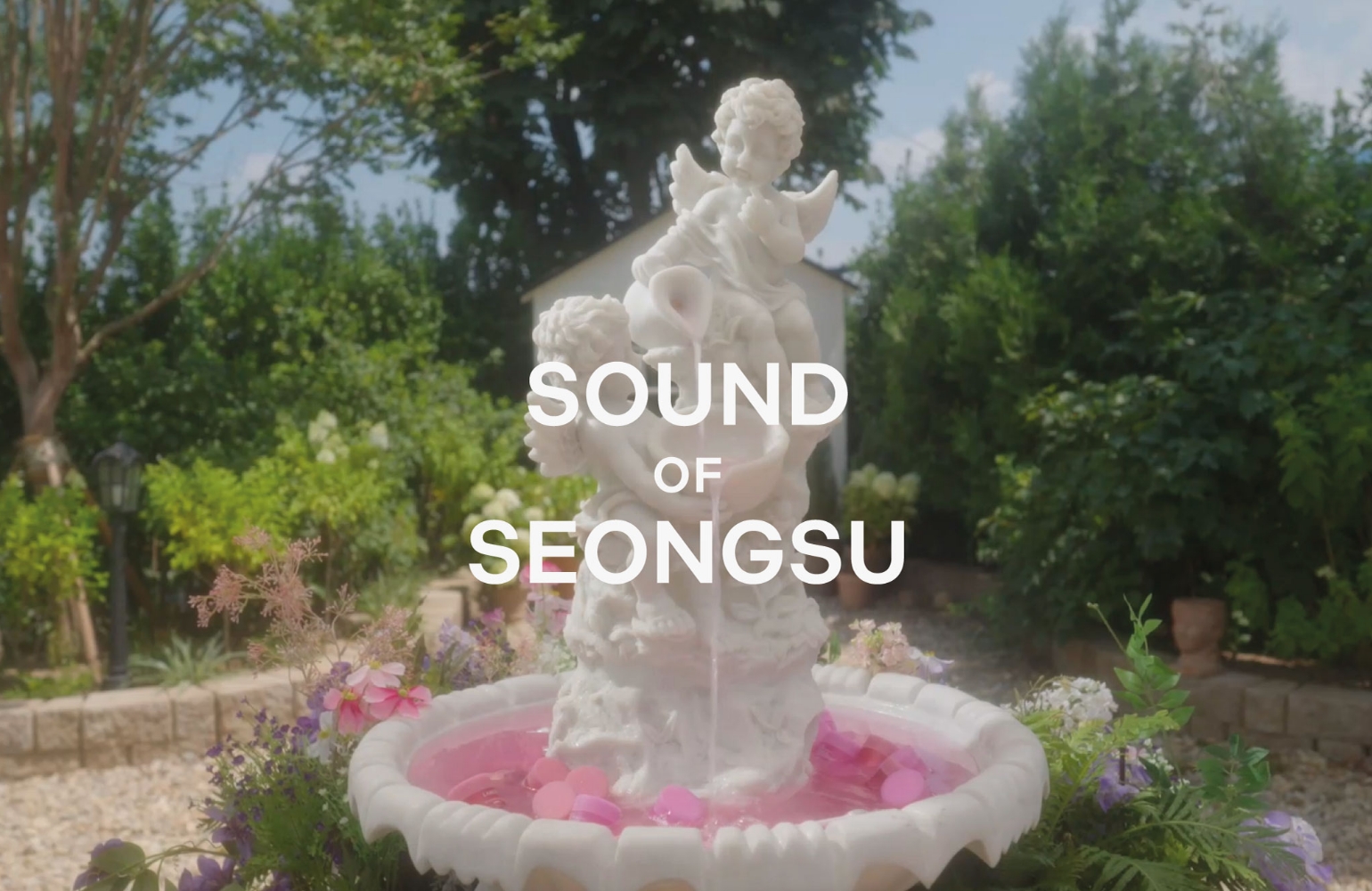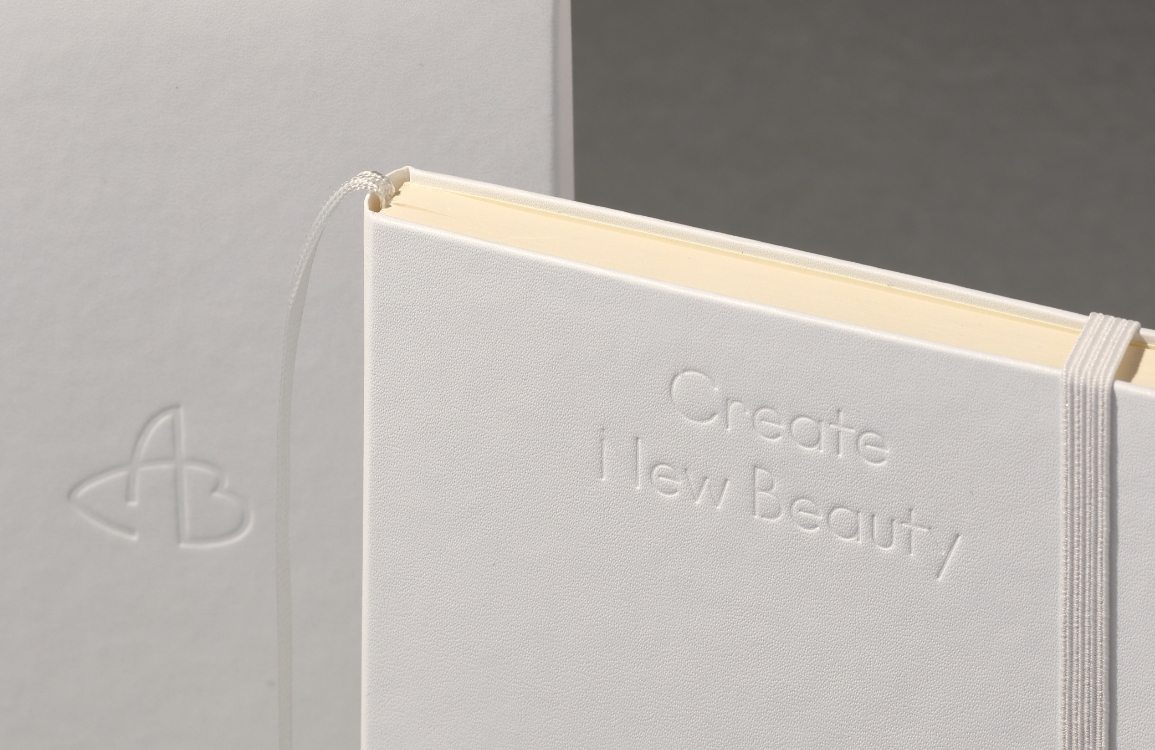Innisfree Moeum CSR Project
Summary
The Innisfree Moeum Foundation is a non-profit organization established to carry on Amorepacific Group’s deep affection for Jeju. The name “Moeum” signifies a foundation that brings together hearts and minds to create shared value. The foundation’s key initiatives focus on preserving Jeju’s rich heritage while blending in new cultural elements to build a sustainable future. This project was a collaborative social contribution effort between the Moeum Foundation and designers from the Amorepacific Creative Center, aimed at supporting Jeju’s native ecosystem.
01. Biyangdo Brand Identity Design

Biyangdo is located in Hallim-eup, about a 15-minute boat ride from Hallim Port. With an area of 0.52 km² and a population of 166, it’s a small island village perfect for a half-day walk. The island is known to have been formed by volcanic activity and features many peaks and craters. Viewed from the front, it resembles the famous image from The Little Prince—a boa constrictor that has swallowed an elephant—giving it a uniquely charming shape.
Often called a miniature version of Jeju Island, Biyangdo still offers something uniquely its own: Biyangbong Peak, which rises like a hat at the center of the island, and Perlhangmot, Korea’s only salt marsh. The pond’s crescent shape inspired a walking path that follows its curve, making it one of the island’s most scenic strolls. Though Perlhangmot is currently not well maintained, local residents dream of caring for and preserving this one-of-a-kind natural wetland.
Often called a miniature version of Jeju Island, Biyangdo still offers something uniquely its own: Biyangbong Peak, which rises like a hat at the center of the island, and Perlhangmot, Korea’s only salt marsh. The pond’s crescent shape inspired a walking path that follows its curve, making it one of the island’s most scenic strolls. Though Perlhangmot is currently not well maintained, local residents dream of caring for and preserving this one-of-a-kind natural wetland.
One of the most surprising things I discovered while exploring Biyangdo was the contrast of scenery
along the island’s perimeter— the deep blue sea on one side, and constantly shifting landscapes on
the other. I found inspiration in the familiar stone piles seen throughout Jeju Island, the reed
fields proudly introduced by a village haenyeo (female diver), the plants typically found in
warmer climates, and the lush vegetation covering Biyangbong Peak.


Biyangdo, formed by volcanic activity, offers a landscape rich in unique textures. We aimed to incorporate
various motifs into the brand identity, drawing inspiration from key features such as the basalt rock piles,
Pulrang Pond—Korea’s only salt marsh—and the distinct shape of Biyangbong Peak that defines the island’s form.
To ensure the guidebook would be well integrated into the community, we conducted resident interviews and on-site research beforehand. We focused on practicality for the villagers by designing packaging and patterns for local specialty products, as well as banners to be used for improving the village’s appearance.
To ensure the guidebook would be well integrated into the community, we conducted resident interviews and on-site research beforehand. We focused on practicality for the villagers by designing packaging and patterns for local specialty products, as well as banners to be used for improving the village’s appearance.
BI GUIDE BOOK
We developed a brand identity (BI) inspired by the mountain peaks of Biyangdo to help lay the groundwork for
supporting the local tourism industry. To ensure easy application of the BI, we created a guidebook and
distributed it to the village residents through the Innisfree Moeum Foundation, making it simple for them
to apply the BI to tourism-related products.
02. GREEN HOUSE IN BIYANGDO ㅣ Biyangdo Nursery
Biyangdo has a nursery that supports the growth of native plants. Local residents cultivate plants here
and transplant them across the island. They are also planning to include the nursery itself as part of
the island’s tourist attractions. To support this effort, we helped enhance its value as a tourist
destination by improving the nursery’s exterior facilities. This included the design and installation of
exterior elements and signage.
before

With the nursery renamed GREEN HOUSE in Biyangdo, a new signboard was created. Informational text was also
added to the signage and windows to help visitors understand the nursery’s role.
Across Biyangdo, native plants grow in various locations, but many of the informational signs had become worn and required maintenance due to environmental factors. As part of the nursery design process, we proposed updates that would allow these signs around the island to be refurbished as well.
Across Biyangdo, native plants grow in various locations, but many of the informational signs had become worn and required maintenance due to environmental factors. As part of the nursery design process, we proposed updates that would allow these signs around the island to be refurbished as well.
after


03.PLOGGING LEAFLET DESIGN | Plogging Leaflet Design


Jeju Island generates the highest amount of household waste per capita in the country—1.65 kg per person per day.
Given that around 30,000 to 40,000 tourists visit Jeju each day, it is estimated that a significant portion of
this waste is generated by visitors.
To help address this issue, the Innisfree Foundation holds an annual plogging event—where participants pick up litter while
enjoying a run. To support the event, we designed and produced two leaflets that both communicate the purpose
of the campaign and outline the plogging route.
Green Pine Native Habitat Plogging Leaflet


Sol Oreum Plogging Leaflet


04. The Seven Stories of Eoseungsan Oreum,
Jeju’s Tree Stories Drawing Book Publication
Jeju’s Tree Stories Drawing Book Publication
We are preparing to publish a book that offers a multidisciplinary perspective on Jeju’s oreums (volcanic cones), with contributions
from experts in geology, botany, zoology, and the humanities. The book is intended to be accessible to the general public, and all
contributors are residents of Jeju Island. We are currently assisting with the cover and interior design. Additionally, we are
working on a companion coloring book titled The Story of Jeju’s Trees, which features native plants of Jeju. This book will
serve as a simplified and approachable version of Eoseungseng Oreum, designed for easy access by all.

It was a meaningful experience to take part in the Moom Foundation’s efforts to promote the value of Jeju from a CSR perspective.
We sincerely thank Mr. Han Chan-ho and Ms. Kim A-in of the Innisfree Moom Foundation for their support on this project.
We sincerely thank Mr. Han Chan-ho and Ms. Kim A-in of the Innisfree Moom Foundation for their support on this project.
- Amorepacific Creatives
- Design
- Kim Dooyeon, Kwon Jihyun,
Kim Yeonseo















